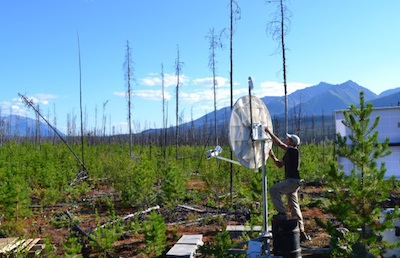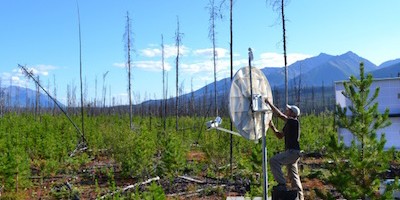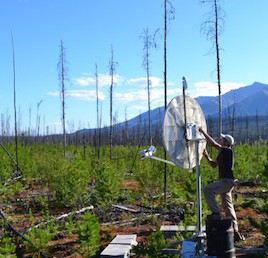
University of Ottawa’s professor Pascal Audet installing a seismograph station. These were used to collect data in order to understand ‘slow’ earthquakes. (Photo credit : Pascal Audet)
Every 14 months, a ‘slow’ earthquake occurs beneath Vancouver island which last for 10 to 14 days; a new study helps explain why some slow quakes happen more frequently than others.
Occurring along faults around the world at a depth of 25-40 km, slow earthquakes are undetectable by humans, but they vary in frequency, with some happening as often as every six months. The study shows that the more silica there is in the continental crust, the faster ‘slow’ earthquakes will occur. Silica lets water flow more easily through the crust, lubricating the fault and making the earthquakes happen sooner.
While slow earthquakes are not dangerous, there is a slightly higher risk that a conventional earthquake could start during a slow earthquake.
Original research paper published in the journal Nature on June 18, 2014.
Names and affiliations of selected authors

